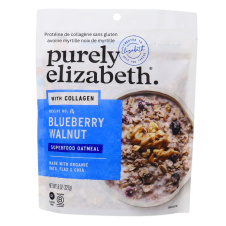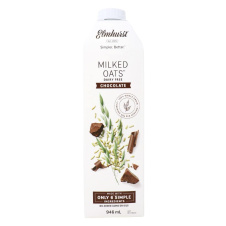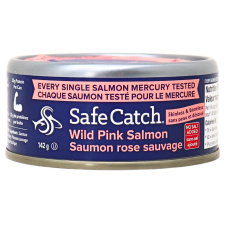
What to Eat Before Bed for a Better Quality Sleep
Before you prepare your late night snack or meal, you may want to stop and consider what foods you should eat before bed. Believe it or not, your diet may be the reason for all your tossing and turning at night; There are certain foods that can help you sleep and others that will have you on zombie-mode the following day. And, we know that you have lot’s on your agenda, so your sleep is sacred. Well, say goodbye to counting sheep, and say hello to better sleep! Here are 8 foods to eat before bed for better sleep:
1. Kiwi
When it comes to sleep this fruit is small but mighty. As you might know, this magical fruit is full of antioxidants like vitamin E and vitamin C, and it also has generous amounts of folate and potassium. But, did you know that eating Kiwi can raise your serotonin levels, the hormone that monitors your sleep cycle, and the production of the famous sleep hormone, Melatonin? It’s true, eating kiwi before bed may be the key to improving your sleep game. Eating two kiwis before bed might help you fall asleep faster, sleep more and better! Although, we’re not entirely sure how eating kiwi helps you sleep better, many consider kiwi as one of the best foods to eat before bed.
2. Nighttime Milk
Behold, the old tradition of having a warm glass of milk before bed may have some credibility. Milk naturally contains melatonin, which has a reputation for helping you fall asleep. In fact, when cows are milked at night their milk contains higher levels of melatonin than cows milked during daytime. Milk also naturally contains high levels of other sleep-promoting components like tryptophan, vitamin D and calcium, all that are essential not only for helping you fall asleep but also to stay asleep. However, don’t panic if you’re dairy-free, vegan or simply prefer to keep milk out of your diet, you can still reap the benefits of this night time ritual. Many believe that the association between a warm drink and bedtime is enough to help you fall asleep. So grab your favourite dairy-free milk, or tea (decaf of course), and just sit back and relax. The increased state of relaxation is what truly can help you catch those Z’s.
3. Tart Cherries
Tart cherries or sour cherries may also be an effective sleep-inducing food. Whether eaten or drank, tart cherries might help you get longer and better sleep. Aside from having some serious health benefits, tart cherries are rich in our favourite sleep-inducing hormone melatonin! Tart cherries are also full of antioxidants which may play a role in the quality of your sleep. In fact, tart cherry juice is sometimes used to treat insomnia as it can cause sleepiness. So, sneaking in some tart cherries or tart cherry juice may be beneficial for your sleep schedule.
4. Fatty Fish
Already known as a super nutritious protein, fatty fish also have some properties that may keep you from counting sheep all night long. Fatty fish like salmon, have plenty of vitamin D, omega-3 fatty acids, and other important nutrients like calcium, to keep your body in tip top shape. But, did you know that vitamin D and omega-3 fatty acids are best pals with serotonin, another sleep-inducing hormone? That’s right, vitamin D and omega-3 fatty acids can help increase your levels of serotonin, helping you fall asleep faster. The combination of the high levels of vitamin D, omega-3 fatty acids, and other essential nutrients all work together to help give you that beauty sleep that you deserve. Overall, eating a few ounces of fatty fish like salmon, trout, tuna and mackerel, before bed can help you sleep better. But, for best sleep results and overall health benefits you should aim to incorporate fatty fish into your diet three times a week if your diet allows.
5. Nuts
When it comes to nuts, sleep is another reason that you may want to consider incorporating them into your late night meal. Nuts contain melatonin along with other sleep-aids like omega-3 fats, zinc, calcium and magnesium. If you particularly suffer from midnight-rumbles then nuts might be a good option for you as the magnesium in the nuts can help reduce levels of cortisol, the stress hormone that can cause those midnight interruptions. Altogether, the nutrients in nuts may help you escape to dreamland. A handful of almonds, walnuts, pistachios or cashews, before bed may just do the trick!
6. Oats
Like rice, oats are higher in carbs but with the extra added benefit of more fibre. The carbs in the oats can induce sleepiness if eaten before bed. Additionally, oats are a good source of melatonin, which as discussed earlier is essential for a good night's rest.
7. Tea
There’s nothing as relaxing as a cup of tea right? Well, this may be just what you need to get you to sleep. Many teas, like chamomile tea, are natural remedies for insomnia. Teas have the ability to help you relax and potentially reduce overall anxiety, helping you calm those raising bedtime thoughts. Teas are also rich in antioxidants that can bind receptors in your brain and produce a calming and sleepy effect. Feeling calm and relaxed before bedtime can help you to fall asleep faster and stay asleep longer. However, it is important to avoid all teas with caffeine before bedtime. Instead, look for caffeine-free teas with chamomile or nighttime teas.
Final notes:
Overall, there are many foods that can help you catch those Z’s. However, it is of utmost importance to have a balanced diet to get the best sleep every night. Having a balanced diet will allow you to get all the essential nutrients that your body needs to get a good night’s rest. Some general ways that you can avoid sleep deprivation is by limiting your caffeine intake, especially in the evening, limiting alcohol consumption as it can disrupt your sleep schedule, not to skipping meals as your body may wake you if it's hungry, avoiding eating spicy or fatty foods right before bed to prevent acid reflux, and trying not to eat too close to your bedtime to allow your body to digest the food.
Aside from having a balanced diet, it’s also important to establish a good sleep routine. Forming certain habits like avoiding using electronics at night and sleeping in a dark and quiet room is also essential for good sleep. Other lifestyle habits that you can also work on to improve your sleep game include staying hydrated and exercising regularly. In conclusion, getting good quality sleep every night is crucial for your overall health. As noted above, diet and sleep quality go hand-in-hand, so your diet or lifestyle may be the culprit responsible for your sleep problems. If you struggle with sleep, look for opportunities to incorporate sleep-promoting foods and habits into your lifestyle.
Shop for sleep promoting foods here!









